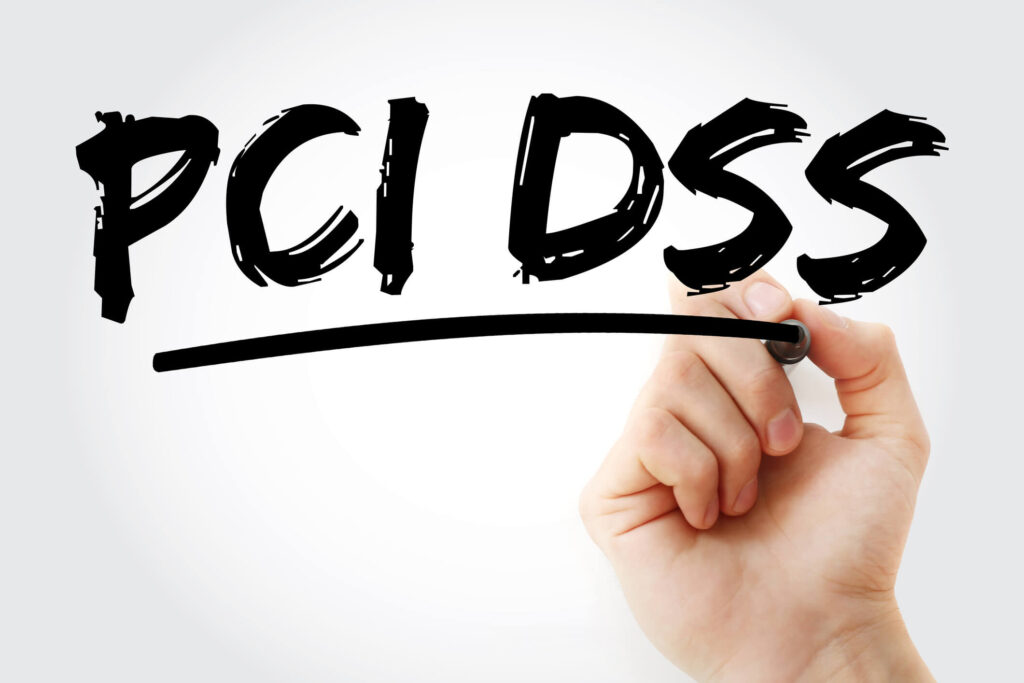
By Karen Henriques August 14, 2024
Marijuana payment processing has become a critical aspect of the rapidly growing cannabis industry. As more states legalize the use of marijuana for medical and recreational purposes, businesses in this sector face unique challenges when it comes to accepting payments.
In this comprehensive guide, we will explore the best practices for marijuana payment processing, including understanding the challenges, finding a reliable payment processor, compliance with state and federal laws, implementing secure payment solutions, exploring payment options, navigating the banking landscape, mitigating risk and fraud, ensuring customer privacy and data protection, and addressing frequently asked questions.
Understanding the Challenges of Marijuana Payment Processing
The marijuana industry faces several challenges when it comes to payment processing. One of the primary challenges is the conflict between state and federal laws. While many states have legalized marijuana, it remains illegal at the federal level. This creates uncertainty and reluctance among traditional financial institutions to provide payment processing services to marijuana businesses.
Another challenge is the high-risk nature of the industry. Due to the federal illegality and the potential for money laundering, fraud, and other illegal activities, banks and payment processors consider marijuana businesses to be high-risk clients. This leads to limited options and higher fees for payment processing services.
Additionally, the lack of access to banking services forces many marijuana businesses to operate on a cash-only basis. This not only poses security risks but also makes it difficult for businesses to track and manage their finances effectively.
Finding a Reliable Payment Processor for Marijuana Businesses
Finding a reliable payment processor is crucial for marijuana businesses to ensure smooth and secure transactions. Here are some key factors to consider when selecting a payment processor:
1. Compliance with State and Federal Laws

It is essential to choose a payment processor that understands and complies with the complex web of state and federal laws governing the marijuana industry. Look for processors that have experience working with cannabis businesses and have a thorough understanding of the legal landscape.
2. Reputation and Track Record
Research the reputation and track record of potential payment processors. Look for processors that have a proven history of serving the marijuana industry and have positive reviews from other businesses in the sector.
3. Transparent Pricing
Ensure that the payment processor provides transparent pricing with no hidden fees. Understand the fee structure and compare it with other processors to ensure you are getting the best value for your money.
4. Integration and Compatibility
Consider the compatibility of the payment processor with your existing systems and software. Look for processors that offer seamless integration with popular point-of-sale (POS) systems and e-commerce platforms.
5. Customer Support
Choose a payment processor that offers reliable customer support. In the event of any issues or concerns, it is crucial to have access to prompt and knowledgeable support to minimize disruptions to your business.
Compliance with State and Federal Laws
Compliance with state and federal laws is of utmost importance for marijuana businesses. Failure to comply can result in severe legal consequences, including fines, penalties, and even the loss of a business license. Here are some key considerations for ensuring compliance:
1. Understand State Regulations
Each state has its own set of regulations governing the marijuana industry. Familiarize yourself with the specific requirements and restrictions in your state, including licensing, reporting, and record-keeping obligations.
2. Stay Updated on Federal Laws
While marijuana remains illegal at the federal level, it is crucial to stay informed about any changes or updates in federal laws and enforcement priorities. This will help you navigate the legal landscape and make informed decisions for your business.
3. Work with Experienced Professionals
Consider working with attorneys, accountants, and consultants who specialize in the marijuana industry. They can provide valuable guidance and ensure that your business remains compliant with all applicable laws and regulations.
4. Maintain Proper Documentation
Keep detailed records of all transactions, including sales, purchases, and financial transactions. This documentation will not only help you stay compliant but also assist in audits and investigations, if necessary.
5. Implement Robust Compliance Programs
Develop and implement comprehensive compliance programs that cover all aspects of your business operations. This includes training employees on compliance requirements, conducting regular internal audits, and establishing protocols for reporting any potential violations.
Implementing Secure Payment Solutions
Implementing secure payment solutions is crucial for protecting your business and customer data. Here are some best practices for ensuring secure payment processing:
1. Encryption and Tokenization

Choose a payment processor that utilizes encryption and tokenization technologies to protect sensitive data. Encryption ensures that data is securely transmitted, while tokenization replaces sensitive information with unique tokens, reducing the risk of data breaches.
2. PCI Compliance

Ensure that your payment processor is Payment Card Industry Data Security Standard (PCI DSS) compliant. PCI DSS sets the industry standards for securely handling credit card information and helps protect against data breaches.
3. Two-Factor Authentication

Implement two-factor authentication for accessing payment processing systems. This adds an extra layer of security by requiring users to provide two forms of identification, such as a password and a unique code sent to their mobile device.
4. Regular Security Audits
Conduct regular security audits to identify and address any vulnerabilities in your payment processing systems. This can be done internally or by hiring third-party security firms to perform comprehensive assessments.
5. Employee Training
Train your employees on best practices for data security and fraud prevention. Educate them about the risks associated with phishing attacks, social engineering, and other common tactics used by cybercriminals.
Exploring Payment Options for Marijuana Businesses
Marijuana businesses have limited options when it comes to payment processing due to the high-risk nature of the industry. However, there are several payment options available that cater specifically to the cannabis industry. Here are some popular payment options for marijuana businesses:
1. Cash
While operating on a cash-only basis is not ideal, it is often the only option for many marijuana businesses. Ensure that you have proper cash management protocols in place to minimize the risks associated with handling large amounts of cash.
2. Electronic Funds Transfer (EFT)
Some payment processors offer electronic funds transfer services, allowing customers to make payments directly from their bank accounts. This can be a convenient and secure option for both businesses and customers.
3. Cryptocurrencies
Cryptocurrencies, such as Bitcoin, have gained popularity in the cannabis industry due to their decentralized nature and potential for anonymity. However, it is important to consider the volatility and regulatory uncertainties associated with cryptocurrencies.
4. Closed-Loop Payment Systems
Closed-loop payment systems are specifically designed for the cannabis industry. These systems allow businesses to create their own payment networks, providing a secure and compliant payment solution.
5. Third-Party Payment Processors
Some payment processors specialize in serving high-risk industries, including the marijuana industry. These processors have experience working with cannabis businesses and can provide tailored payment solutions.
Navigating the Banking Landscape for Marijuana Businesses
Navigating the banking landscape is one of the biggest challenges for marijuana businesses. Due to the federal illegality of marijuana, most traditional banks are reluctant to provide banking services to cannabis businesses. However, there are some options available:
1. Credit Unions
Credit unions are often more willing to work with marijuana businesses compared to traditional banks. Look for credit unions that have experience serving the cannabis industry and understand the unique challenges it faces.
2. State-Chartered Banks
Some states have established state-chartered banks specifically for the marijuana industry. These banks are designed to provide banking services to cannabis businesses while ensuring compliance with state regulations.
3. Cannabis-Focused Financial Institutions
There are a few financial institutions that specialize in serving the cannabis industry. These institutions understand the unique needs and challenges of marijuana businesses and can provide tailored banking solutions.
4. Merchant Cash Advances
Merchant cash advances are a form of financing where a lender provides upfront cash in exchange for a percentage of future sales. This can be a viable option for marijuana businesses that struggle to find traditional banking services.
5. Collaborate with Ancillary Service Providers
Consider collaborating with ancillary service providers, such as payment processors or compliance firms, that have established relationships with banks. These partnerships can help facilitate access to banking services.
Mitigating Risk and Fraud in Marijuana Payment Processing
Mitigating risk and fraud is crucial for marijuana businesses to protect their finances and reputation. Here are some best practices for minimizing risk and fraud in marijuana payment processing:
1. Know Your Customers (KYC)
Implement robust KYC procedures to verify the identity of your customers and ensure they are legally allowed to purchase marijuana products. This can help prevent fraudulent transactions and protect your business from legal liabilities.
2. Transaction Monitoring
Regularly monitor transactions for any suspicious activity or patterns. Implement automated systems that can flag potentially fraudulent transactions, such as unusually large purchases or multiple transactions from the same customer.
3. Chargeback Prevention
Chargebacks can be a significant issue for marijuana businesses. Implement measures to prevent chargebacks, such as clear return and refund policies, accurate product descriptions, and excellent customer service.
4. Fraud Detection Tools
Utilize fraud detection tools and technologies to identify and prevent fraudulent transactions. These tools can analyze transaction data in real-time and identify any anomalies or red flags.
5. Regular Audits and Reviews
Conduct regular audits and reviews of your payment processing systems and procedures. This can help identify any vulnerabilities or weaknesses that could be exploited by fraudsters.
Ensuring Customer Privacy and Data Protection
Ensuring customer privacy and data protection is essential for building trust and maintaining a positive reputation in the marijuana industry. Here are some best practices for protecting customer data:
1. Privacy Policies
Develop and implement clear and comprehensive privacy policies that outline how customer data is collected, used, and protected. Make sure to communicate these policies to your customers and obtain their consent.
2. Secure Data Storage
Store customer data securely using encryption and other data protection measures. Regularly update your systems and software to ensure they are protected against the latest security threats.
3. Data Breach Response Plan
Develop a data breach response plan that outlines the steps to be taken in the event of a data breach. This includes notifying affected customers, cooperating with law enforcement, and taking measures to prevent future breaches.
4. Employee Training
Train your employees on data protection best practices and the importance of safeguarding customer information. Implement strict access controls and regularly review and update employee access privileges.
5. Third-Party Vendors
If you work with third-party vendors or service providers, ensure that they have robust data protection measures in place. Conduct due diligence and review their security practices to minimize the risk of data breaches.
Frequently Asked Questions (FAQs) about Marijuana Payment Processing
Q.1: Can I accept credit card payments for my marijuana business?
Accepting credit card payments for marijuana businesses can be challenging due to the high-risk nature of the industry. However, there are payment processors that specialize in serving the cannabis industry and can provide credit card processing solutions.
Q.2: How can I ensure compliance with state and federal laws?
To ensure compliance with state and federal laws, familiarize yourself with the specific regulations in your state and stay updated on any changes in federal laws. Work with experienced professionals and implement robust compliance programs.
Q.3: What are the risks associated with cash-only transactions?
Cash-only transactions pose security risks, as handling large amounts of cash increases the likelihood of theft and robbery. Additionally, cash transactions make it difficult to track and manage finances effectively.
Q.4: Are cryptocurrencies a viable payment option for marijuana businesses?
Cryptocurrencies can be a viable payment option for marijuana businesses due to their decentralized nature and potential for anonymity. However, it is important to consider the volatility and regulatory uncertainties associated with cryptocurrencies.
Q.5: How can I prevent chargebacks in my marijuana business?
To prevent chargebacks, implement clear return and refund policies, provide accurate product descriptions, and offer excellent customer service. Regularly monitor transactions for any suspicious activity and utilize fraud detection tools.
Conclusion
In conclusion, marijuana payment processing presents unique challenges for businesses in the cannabis industry. However, by understanding the challenges, finding a reliable payment processor, complying with state and federal laws, implementing secure payment solutions, exploring payment options, navigating the banking landscape, mitigating risk and fraud, and ensuring customer privacy and data protection, marijuana businesses can overcome these challenges and thrive in this rapidly growing industry.
By following the best practices outlined in this guide, businesses can ensure smooth and secure payment processing, build trust with customers, and position themselves for long-term success.